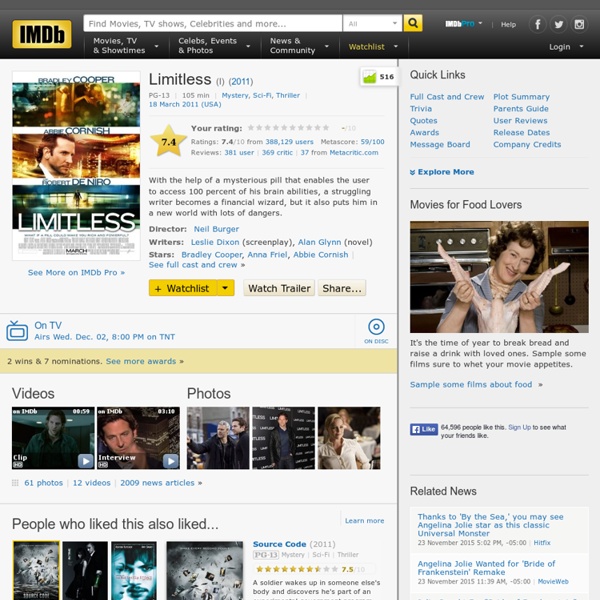Limitless (2011)
Cowboys & Aliens (2011
The Notebook (2004)
Terra Nova (TV Series 2011)
A Walk to Remember (2002)
A Lonely Place to Die (2011
Bilbo le Hobbit (film)
Un article de Wikipédia, l'encyclopédie libre. Le roman de J. R. Court-métrage de 1966[modifier | modifier le code] Téléfilm animé de 1977[modifier | modifier le code] Téléfilm de 1985[modifier | modifier le code] Série de films de Peter Jackson[modifier | modifier le code]
Battleship (2012)
Crazy, Stupid, Love. (2011
The Darkest Hour (2011
Beyond the Border (2011
Wrecked (2011
Zima mertvetsov. Metelitsa (2011
Age of Heroes (2011
Related:
Related:



